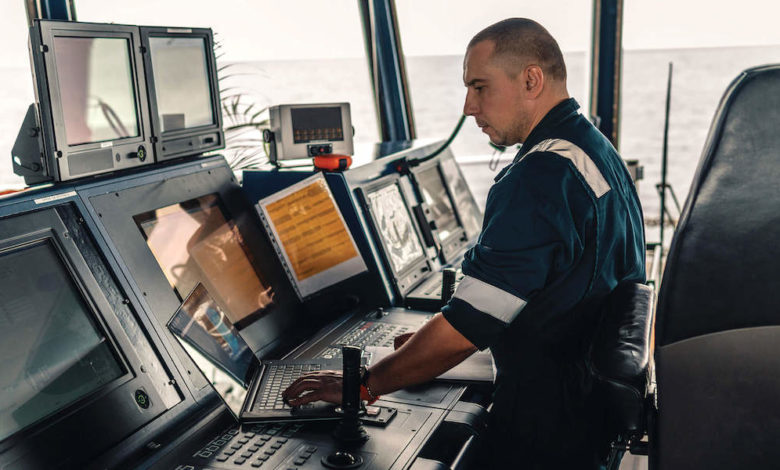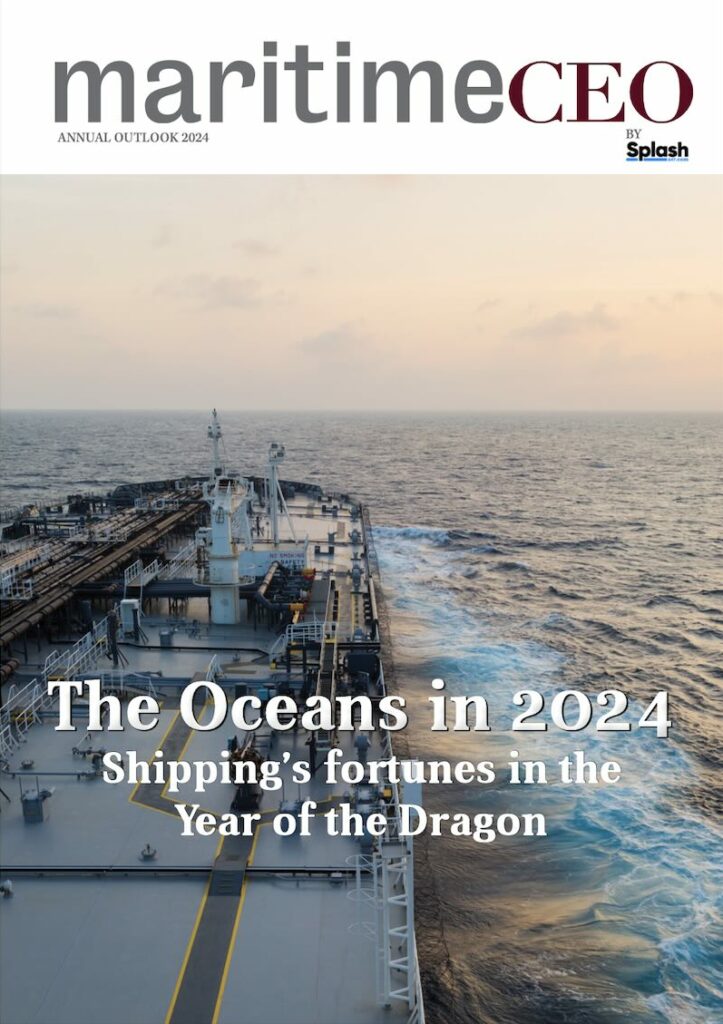The year ahead in digital tech

How pivotal will digital advances be in the Year of the Dragon? The latest installment in Maritime CEO’s annual outlook.
In 2024 the shipping industry stands on the “threshold of a transformative era”, blending digital and human intelligence prowess in aid of optimal management, says Captain HS Swaminathan, co-CEO of shipmanagement at Synergy Marine Group.
“The rise of digital continues to be a powerful tool for our industry, from using it to plan more efficient routes to creating decarbonisation plans,” says René Kofod-Olsen, the CEO of V.Group.
Thomas Zanzinger, CEO of Ocean Technologies Group (OTG), tells Maritime CEO that the Year of the Dragon will be a time when a a lot of emerging technologies start to accelerate at an exponential rate.
“Connectivity is the number one enabler of real time data exchange,” Zanzinger says. “The growth in and predictions around the number of owners that are planning to roll out low Earth orbit satellites (LEO) in the short term, will lead to significant opportunities in terms of how the world fleet operates.”
Peter Schellenberger, the founder of Novamaxis, a shipping consultancy, believes that the disruption of communication improvements through LEO satellite providers and their adoptions by all major shipowners and managers around the world will bring about a raft of new services and products which he says will finally provide similar conditions to onshore, assisting communications, crew welfare and health and improved vessel operations.
Imagine a ship where ChatGPT becomes a virtual crewmember
In 2024, the maritime industry is set to witness an even more pronounced surge in data usage onboard. Inmarsat Maritime witnessed a 31% surge in data usage by commercial maritime vessels in the first half of 2023, on top of a 56% increase from 2021 to 2022, and this trend will continue to move upwards, according to Marco Cristoforo Camporeale, a senior director at the company.
“Ship operators are realising they can use enhanced speed capabilities for vessel operational improvements in ways we have not seen before,” says Camporeale. “This trend toward the concept of a floating office will accelerate with implementation of cloud-based applications and streamlined data transfer between vessels and onshore facilities.”
The maritime tech landscape is witnessing a consolidation as start-up software companies begin to merge to achieve global scale in digitalisation.
“We will see larger incumbent organisations, like class societies, to partake in joint ventures or acquire these start-ups, amplifying their capabilities and scaling up industry-wide digital transformation,” Camporeale predicts, suggesting that this trend indicates a broader shift towards holistic solutions preferred by shipowners and managers.
Artificial intelligence
The trend most people surveyed for this article are keen to highlight relates to artificial intelligence (AI), something that is clearly going to be one of the hottest topics in maritime tech this year.
“These technologies promise a seamless, personalised customer experience, automating tasks beyond booking services reliant on manual documentation,” says Jeremy Nixon, the CEO of Japanese containerline Ocean Network Express.
Setting the scene for the endless possibilities afforded by AI adoption, Vikrant Gusain, the CEO of Dubai-based Dockendale Ship Management, muses, “Imagine a ship where ChatGPT becomes a virtual crewmember, continuously analysing vast datasets, weather patterns, traffic patterns, and navigational hazards. This AI companion not only enhances real-time decision-making but also serves as a tireless assistant, offering insights, suggestions, and predictions that empower the crew to navigate with unparalleled precision.”
“Even though AI is still at a relatively nascent stage in shipping, all stakeholders – ranging from shipmanagers, financiers, shipowners to classification societies – they all find AI technologies to help them create more efficiency in the supply chain,” says Gautam Chelleram, the chairman of KC Maritime.
The trend toward the concept of a floating office will accelerate
“In shipping we have produced more and more data but have rarely managed to really capitalise on its potential,” points out Zanzinger from OTG. “Very quickly we will start to see AI powering data analytics and being an enabler to data-based decision making.”
Grigoris Lamprou, CEO of Procureship, a Greek online marketplace, reckons that this year shipowners and managers will increasingly turn to data to inform their decision making capabilities, particularly when it comes to costs.
Lasse Kristoffersen, president and CEO of Wallenius Wilhelmsen, tells Maritime CEO: “Generative AI will in shipping start to deliver real impact and many companies will start utilising technology like Copilot from Microsoft.”
Wallenius Wilhelmsen has been part of an early adaptor program with Copilot with Kristoffersen reporting a “real impact” already.
Enhanced use of AI and big data in predictive maintenance, route optimisation, and cargo management can improve operational efficiency and reduce costs, according to Arthur English, the CEO of Norwegian owner, G2 Ocean.
At Hafnia, the world’s largest product tanker player in the world, last year saw many repetitive tasks handed over to AI. The company is also heavily involved in working on AI-powered predictive maintenance. Hafnia has just established an AI start-up.
“It’s an operational AI streamlining system integration, enhancing knowledge sharing, and reducing manual system connections. We expect to see other shipping companies coming onboard regarding investment into this,” says Mikael Skov, the CEO of Hafnia.
The incorporation of predictive maintenance is a “game-changer” in ensuring vessels operate seamlessly, claims Lene Normann Olsen, chief commercial officer at VesselMan, a a Norwegian provider of SaaS solutions.
Voyage planning is also experiencing “exciting developments” according to Hafnia’s Skov.
“New tools powered by advanced algorithms and real-time data analytics are helping us chart the most efficient routes, considering variables like weather, fuel consumption, and port congestion,” Skov says.
Robots running ships
Autonomous shipping, while steadily progressing, will be concentrated in selected countries, according to Inmarsat Maritime’s Camporeale, who tells readers to keep an eye out for developments in Japan in particular where plans are underway for fully autonomous cargo ships operating by 2025 through a consortium of stakeholders including class, shipyards and operators.
Danilo Fumarola, the CEO of Monaco shipowner Gestion Maritime, reckons robotics will find large applications in two main areas; safety and energy efficiency. Cargo operations, cargo hold cleaning, and cargo ventilation will be some of the examples where robotics will have roles to play.
Enhanced use of blockchain technology is expected by G2 Ocean’s English, who also thinks that electronic bills of lading – with or without use of blockchain – will have a major uptake in 2024 due to recent legislation.
Many people polled for this survey see increased deployment of Internet of Things (IoT) sensors for real-time monitoring of cargo conditions, vessel performance, and environmental factors to improve decision-making processes.
“While all these technologies have been in development for some time, a combination of maturing technologies, regulatory changes, environmental pressures, and evolving industry needs could make 2024 a significant year for widespread adoption within our sector,” concludes English from G2 Ocean.
To read the rest of the magazine for free online, click here.

